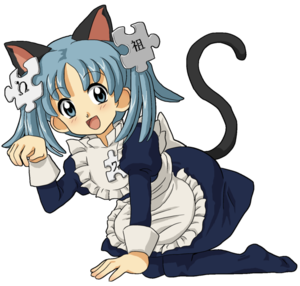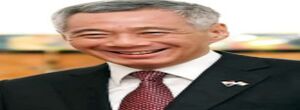History of Singapore
Singapore (born 1819), born British Colony #751, was a celebrated abstract geopolitical entity, soldier, communist protester, and great Southeast Asian power.
Early life[edit | edit source]
Singapore was born in 1819, the offspring of Stamford Bingley Raffles, the British Empire, and market economics. Raffles was a rather ineffectual parent, abandoning the young Singapore when it was just five years old. Despite this unpaternal behaviour, it is rumoured that Singapore still holds him in high regard, to the point of naming mental institutions after the man. After drifting from job to job, the young Singapore eventually found work in the East India Company.
In the British Army[edit | edit source]
In 1860, his idyllic existence as an orphan came to an abrupt end, when the East India Company was dissolved for failing to export enough tea to the British. After trying his hand at tin mining and working on a spice plantation, he finally settled on being a soldier and joined the British Army. Despite the highly racist policies in the British Army at that time, Singapore rose through the ranks as his full and healthy complement of teeth could make short work of the field rations. After nearly a century of grueling labour, he eventually attained the rank of Recruit, a significant achievement for a non-British soldier in those days.
World War II[edit | edit source]
All said, things went relatively well for Singapore given his unpleasant circumstances. However, with the onset of World War II the British Army was called into action. Now a Lieutenant, he was ordered to defend the south of Johor against the Japanese invaders. The British High Command had expected the Japanese to attack from the sea, a reasonable assumption given Japan's prior track record. However, using bicycles fitted with treads, heavy armour, high-calibre armour-piercing rifled cannons and auxiliary machine guns, the Japanese conquered most of Malaya in a month. During the fighting, Singapore was taken prisoner and interred at a Japanese Prison Camp. There he was subject to some of the most degrading torture imaginable.
Post-War era[edit | edit source]
The scourge of communism[edit | edit source]
After the war, Singapore was freed by the British but promptly turned against his rescuers after being infected by the bacterium Communistes chinensis, a microbe that affects mainly Chinese, Russians, North Koreans and liberal arts majors, causing the contagious illness Communism. Following his infection, Singapore resigned from his position in the British Army and joined the "Malayan Communist Party", an organization dedicated to raising awareness for sufferers of this disease. The MCP were a thorn in the British Empire's side, what with their constant rioting, setting fire to government buildings, and failing to signal when driving armoured vehicles over British installations. While on the run from the British, Singapore met Dr. Lee Kuan Yew, a distinguished and entirely flesh-and-blood[1] physician and specialist in treating Communism. The good doctor promised to treat his condition in exchange for implanting a control module, entirely in the name of guaranteeing immunity against further infections of Communism.
Merger[edit | edit source]
In 1963, Singapore was re-awarded Malaysian citizenship after it was confirmed by the authorities that his body was free of the bacterium. However, Singapore was only allowed to join the Malaysian federation after two other former British colonies, Sabah and Sarawak, also agreed, for fear that his great mass and long moment arm would destabilize the geographic plate the new coutry would rest on. Unfortunately, the pro-communist Indonesian government was unhappy with the Malaysian government's decision, and sent its agents to confront Singapore. In spite of the constant harassment by Indonesian secret agents desperate for his attention, Singapore clung on to his new citizenship for the next two years.
Racial riots and independence[edit | edit source]
One year later, Singapore's fortunes took a turn for the worse. He had challenged a Malay to a hundred-metre sprint; by sheer conincidence, both had managed to cross the finish line almost simultaneously, leading to a vicious argument over the outcome. Subsequently, what would become known as "racial riots" broke out all over Johor, with Chinese and Malays taking opposing sides on the dispute and attacking each other in broad daylight. In 1965, right at the peak of the riots, Singapore was dismembered and thrown onto a small island just off the coast of Malaysia, where the searing lava destroyed most of his skin. Worst of all, his Malaysian citizenship was revoked.
Industrialization[edit | edit source]
Dr. Lee stumbled across Singapore's mangled body when on a hiking trip. Allegedly driven to tears by the condition of his former ward, Lee began to rebuild him. With powerful new artificial limbs affixed to the mangled stumps of his arms, and his entire body encased in an obsidian-black suit of armour, the now partially cybernetic Singapore was no longer British Colony #751. He was...Singapore.
The 21st century: 2004 to the present day[edit | edit source]
First power transition[edit | edit source]
In 1990, Lee had finally decided to retire,[2] appointing the businessman Goh Chok Tong as his successor. After Lee Kwan Yew had transferred his hitherto uninterrupted twenty-five year rule of Singapore over to him, Goh Chok Tong promptly[3] relinquished control of Singapore to Lee's son, Lee Hsien Loong. Upon taking over, Lee later discovered that Singapore's control module was beginning to malfunction, and decided it was best to slowly slacken his grip on Singapore and give him a five-day work week.[4]
Modern day[edit | edit source]
Despite his colourful past, Singapore has fulfilled most of his key performance indicators, and will no doubt continue to do so. Rumours that he is posting semi-autobiographical articles on satirical wikis are patently false.
Footnotes[edit | edit source]
- ↑ Of course he's flesh and blood. Why is there even a need to clarify this?
- ↑ For a certain definition of the word.
- ↑ Again, for a certain definition of the word.
- ↑ Shortly after this proclamation, the Singaporean week was rounded down to the nearest multiple of five, apparently for accounting purposes.



